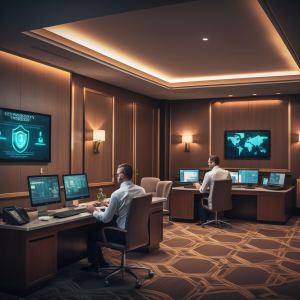Cybersecurity has become a priority for tourism businesses, as cyber threats constantly evolve and can severely impact operations. Implementing threat intelligence enables companies in the sector to identify, process, and analyse information about potential attacks, anticipating their impacts and protecting their systems.
Securing the Tourism Industry Against Cyber Threats
Cybersecurity in Tourism: Protection Against Digital Threats
Strategies and Protective Measures
 Sources of Information. Identifying and selecting relevant sources for the tourism sector is crucial. Platforms like Cyber Threat Alliance provide information on specific threats to connected devices in hotels and other tourist establishments.
Sources of Information. Identifying and selecting relevant sources for the tourism sector is crucial. Platforms like Cyber Threat Alliance provide information on specific threats to connected devices in hotels and other tourist establishments.- Analysis and Response. After identifying threats, it is vital to analyse the information and update security systems accordingly. Staff training is equally important to prevent fraud, such as identity theft on booking platforms.
- Continuous Evaluation. Companies should regularly review their intelligence sources and cybersecurity strategies to ensure they are effective. This includes adjusting processes and enhancing staff training to stay up-to-date with the latest threats.
Benefits for the Tourism Sector
Implementing a cyber threat intelligence programme based on standards such as ISO 27001 or NIST-800 not only protects sensitive company information but also improves their ability to respond to attacks. This is essential for maintaining customer trust and ensuring business continuity in an increasingly digital and connected environment.


